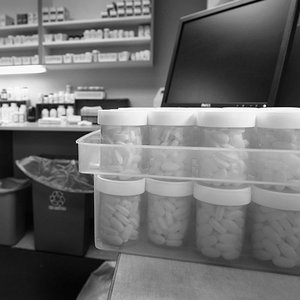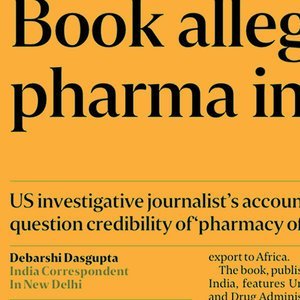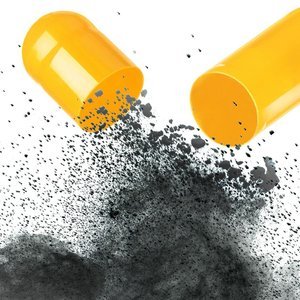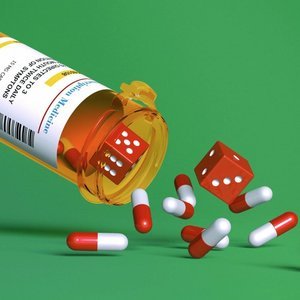BOTTLE OF LIES: REVIEWS & EXCERPTS
09.11.19 Center for Health Journalism
Harrowing portrait of generic drug industry shows us why regulators need to show up
Are generic medications interchangeable with one another and with brand-name drugs? If you think they are, Katherine Eban’s “Bottle of Lies” might cause you to reconsider.
08.20.19 The Straits Times
Book Alleging Breaches in Indian Pharma Industry Sparks Debate
Bottle of Lies has provoked a passionate debate in India, where the pharmaceutical regulatory system is weak.
08.08.19 Wired Magazine
8 Ways Overseas Drug Manufacturers
Dupe the FDA
Let’s say you’re a manufacturer looking to get in on America’s $104 billion generic drug market. You want to make the lowest-cost drugs possible and sell them at the highest possible price. How best to proceed?
07.05.19 Newsweek
Bottle X: Exposing Impurities in the Generic Drug Business
New York Times bestseller published in May, Katherine Eban's expose shines new light on the mysterious generic drug manufacturing business. Almost 90 percent of America's prescription drugs are generics, with the majority of them made overseas. Fraud is widespread, Eban writes, in order to circumvent inspections and maximize profits.
06.14.19 LinkedIn Weekend Essay
A prescription for disaster: The dangers inside the global generic drug industry
In January 2013, a young investigator with the U.S. Food and Drug Administration arrived in the city of Kalyani in Eastern India, to inspect a manufacturing site that appeared to be the perfect emblem of a global drug supply.
05.26.19 Boston Globe Ideas
These pills could kill you
In late 2013, pharmacists at the Cleveland Clinic made a striking decision: The health system would no longer stock a generic version of an immunosuppressant drug, These pills could kill you, made by the Indian company Dr. Reddy’s Laboratories.
05.17.19 Time Magazine
How Some Generic Drugs Could Do More Harm Than Good
For the 16 years that Dr. Brian Westerberg, a Canadian surgeon, worked volunteer missions at the Mulago National Referral Hospital in Kampala, Uganda, scarcity was the norm. The patients usually exceeded the 1,500 allotted beds. Running water was once cut off when the debt-ridden hospital was unable to pay its bills.
05.17.19 Kirkus Book Review
Kirkus gives a starred review to Bottle of Lies
Given the greed of pharmaceutical companies, writes investigative journalist Eban (Dangerous Doses: How Counterfeiters Are Contaminating America's Drug Supply, 2005), cheap generics are essential to money-strapped consumers—and that just may be a death sentence. There are many players and levels in this excellent book, a solid mix of the history of generic drugs, whistleblower tale, and pharmaceutical detective story.
05.13.19 New York Times Book Review
A New Book Argues That Generic Drugs Are Poisoning Us
Who would ever guess that Gandhi helped start an industry whose corruption now plagues us all? Yet here he is, early in Katherine Eban’s Bottle of Lies, barefoot in his Ahmedabad ashram, urging the chemist Khwaja Abdul Hamied (a fellow Indian nationalist) to copy Western drugs as a way to bring affordable medicine to India’s masses. Thus the generic drug industry began.
05.12.19 NPR Book Review
Bottle Of Lies Exposes The Dark Side Of The Generic Drug Boom
Generic drugs are supposed to work just as well as their brand-name counterparts. Once a patent lifts, generic-drug companies find alternative ways to manufacture a drug that should work indistinguishably from the brand-name version. In a world of skyrocketing prescription drug prices, cheaper generics have acted as a crucial counterweight.
05.11.19 NY Times Sunday Review
Americans Need Generic Drugs. But Can They Trust Them?
The fake quality-control data, bird infestations and toxic impurities at the overseas plants that could be making your medication.
“Eban’s tale of deception and intrigue unfolds like a thriller…”
"Disquieting, often unnerving and at times infuriating, Bottle of Lies reminds one of the investigations of corporate America and its products by journalists and scientists at the turn of the twentieth century that led to several powerful reforms—including the passing in 1906 of the law known as the Pure Food and Drug Act, precipitated by the publication that year of Upton Sinclair’s The Jungle."
“Eban’s gripping book lays bare how Gandhi’s well-intentioned local action became hellish global fraud. At once a tale of tragic heroism and a sprawling but concisely written epic, it shows how an industry founded to counteract Big Pharma is now uneasily merging with it, creating a two-headed monster whose tentacles ensnare both hapless victims and would-be regulators.... Bottle of Lies is an invaluable exposé, a reportorial tour de force and a well-turned epic.”
“Reading Bottle of Lies turned out to be more expensive than I anticipated. Sure, there was the $14.99 I shelled out for the Kindle edition. But that's nothing compared to the price of vowing to never buy another generic drug. Pills containing incorrect dosages, unstable compounds, ground-up glass, and even insects? I'd rather keep my kidneys, thanks.”
“In her stunning exposé, Eban describes an industry rife with corruption and life-threatening misdeeds exacerbated by lax regulation.”
“Katherine Eban’s 482-page book is an eye-opener. It is a well-researched account that… included extensive ground reporting from India, China, Ghana, England, Ireland, Mexico and the United States. The result is a chillingly dark exposé that you wish were not true and merely a work of fiction.”
“An urgent, alarming work of health reporting that will make you question every drug in your medicine cabinet.”
– Kirkus Review Best Books of 2019
"A fantastic work of investigative journalism, written in such an eminently readable fashion that the book begs to be turned into a movie."
“Katherine Eban has brought out a book that reads in part like a detective novel, and in part like a compassionate prose anthem...By any standards, this is a massively thorough act of journalism... Superbly structured, in a complex yet accessible narrative.”
“In her fierce and fearless book, ‘Bottle of Lies,’ the investigative journalist Katherine Eban takes us on a journey through the loosely regulated and often corrupt manufacture of generic drugs. Weaving together the story of a terrified but determined whistleblower from India, shady drug producers from China, and a notably timid FDA, Eban’s compelling book should serve as cautionary tale and a wake-up call for consumers, manufacturers, and physicians — ‘should’ being the operative word.”
– Deborah Blum, Stat News, “The 23 Best Health and Science Books to Read This Summer”
”... an extraordinary international corporate crime thriller—Eban describes the whistleblowers, informers, fence sitters and obedient employees who kept evil secrets to themselves in a compelling narrative that focuses on bringing out the bizarre truth—Till Eban challenged the premise, the possibility of labels being printed with lies for one market and truth for another was too evil to investigate.”
Bottle of Lies: New York Public Library Best Books of 2019
“[Eban’s] propulsive narrative investigation traces the history of the generic drug boom, revealing how intense demand for cheaper drugs opened a dangerous chasm between what regulations required of drug companies and how some of those companies actually behaved…. Interspersed between detailed histories of the evolution of the FDA and the rise of Indian pharmaceutical companies are astounding scenes of factory workers fleeing from FDA inspectors with garbage bags full of fraudulent records, and a company wiretapping the hotel rooms of regulators strategizing how to conduct a factory inspection. Eban paints a full and disturbing picture that anyone concerned with the pharmaceutical industry should read.”
Eban’s work is a piece of rigorous attention to detail, backed by dogged hard work. The gory details still shock me. What also helps hold the reader’s attention is its racy style with action, intrigue and conflict. Eban weaves an arresting narrative by deftly moving between personal moments, boardroom drama, global policy, and simplified explanations of the processes of drug production and regulatory mechanisms.... At the least, it's a great example of rigorous investigative journalism...
– Sanjay Nagral, Mumbai Mirror, “How to get filthy rich in rising Asia”
“Bottle of Lies is a tour-de-force of dogged reporting. In her bracing, panoramic account, Katherine Eban expertly unspools a colossal fraud with momentous implications for public health. She exposes not only the lax standards and rampant corporate greed that produce subpar and dangerous medications, but also the abject failure of the American regulatory apparatus to protect unwitting consumers. This book is so alarming in places that it reads like a dystopian medical thriller. But it’s true.”
— Patrick Radden Keefe, author of Say Nothing and The Snakehead
“A shocking exposé of corporate greed, arrogance, and eagerness to exploit the weak for profit. As Upton Sinclair noted more than a century ago, without proper government oversight, all that remains is the law of the jungle. Bottle of Lies is an important work of investigative journalism. Anyone who takes prescription drugs should read it.”
— Eric Schlosser, author of Command and Control and Fast Food Nation
“This book will save lives. As I read Bottle of Lies, I was so stunned by the revelations that I tried to think of works of comparable significance, and the first one that came to mind was Silent Spring. What Rachel Carson did for our understanding of the perils facing the environment Katherine Eban has now done for our understanding of the threats to our health from the drugs we take every day. Bottle of Lies is Katherine Eban’s masterwork of global investigative reporting.”
— James Risen, author of Pay Any Price: Greed, Power, and Endless War










